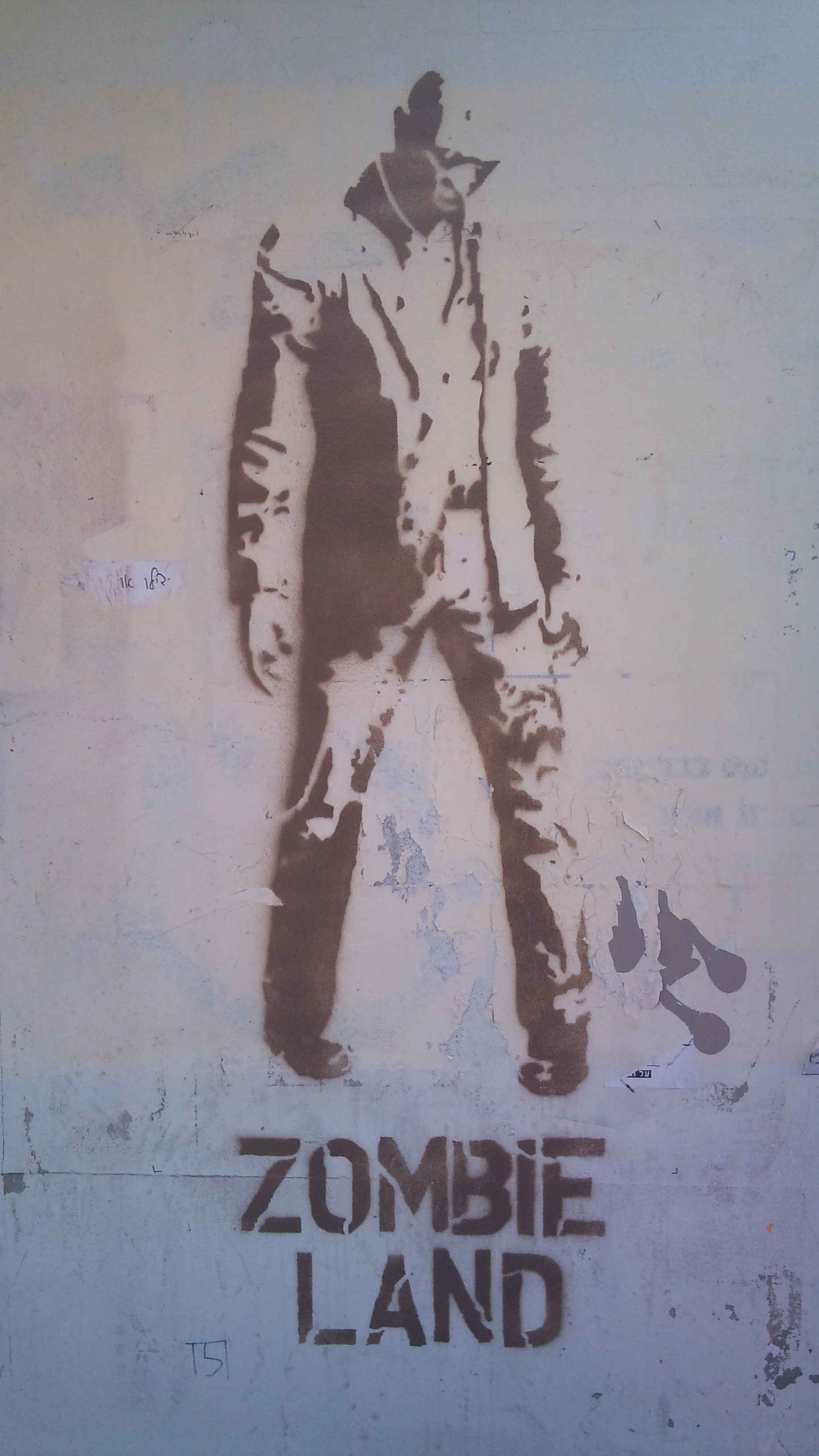The director of the House of the Wannsee Conference explains the beginning of Nazism and the particular anti-Semitism this regime has created. He quotes things written by an important Nazi leader who claims that Jews pollute the Aryan race and therefore are not allowed to have sexual relations with them. The claim goes on to say that after a few generations the offspring of Jews and Arians turn into zombies.
"Who is a zombie? Or what?" I ask.
"A zombie is a man with a distorted body and coarse protrusions on his body," he explains and continues on with his explanation to the participants of The 3rd Academy on Remembrance and Human Rights two weeks ago.
I remembered I met a zombie before, but he was very different from what I heard from the Nazism expert.
That encounter happened when I first returned to country of my birth - Argentina. I tried to regain my mother language. It was no small effort, after years of silencing the Spanish in my mouth. At Kibbutz Bahan, where I grew up, almost all emigrated from Argentina. But we, the youth, wanted to be Israelis. So, we rejected the use of Spanish, even mocked the funny accent it leaves in spoken Hebrew.
I returned to Argentina as a young educator at a Zionist youth movement. It took me about a month until I was able to complete a sentence in Spanish. One time, I arrived at the meeting room of the youth guides and it was a big mess. "Que qilombo que es aqi?!" What a mess here? I tried to be nice to them. "Shhh!" One of them hushed me in panic, "you can not say this word here." "Why?" I was surprised because I knew this was not a word forbidden in public. It means a mess, I heard it thousands of times in Kibbutz Bahan.
"That means a brothel," he whispered into my ears not to embarrass me aloud.
My confusion couldn’t have been avoided, of course. Later, I talked about it to my superior. He explained me that the word Qilombo means a mess as well as brothel.
After several months I went on to Brazil, where my partner and the mother of my two first children was born. We arrived in Salvador, capital of Bahia, during the carnival.
The carnival in Salvador is known for the singing and dancing group called "Blocos." This is a type of a closed-membership club for the carnival (some are active also beyond this period) and participation costs money. These clubs are closed blocks marching through the city streets singing and dancing together. Their deafening music is produced by musical bands that perform on top of huge trucks crawling slowly, pulling decorated carts.
Some of the blocks are mixed, black and white people, and in some of them whites are not allowed. "Only black blocks" are known to be the best. My political instincts led me to seek and meet one of the leaders of the known black block "Elye Aye". A very impressive man met with me and told me about the social activities they hold at the black neighborhoods in Salvador. Although most of the city residents are black there was never a black majority at the City Council. I asked him to participate in their block at the carnival and pay the fee of course, but he refused.
"Isn't it racism?" I asked provocatively. "No, this is empowerment of blacks who must recognize their own culture and strengthen black identity," he said assertively.
I asked for an example and he took a fancy brochure in black, red and white, the colors of their block too. "This is an example workbook with which we teach the young blacks about our history, blacks in Brazil. We, of course, were brought as slaves from Africa centuries ago, so Black mainland roots are in our culture but our greatest pride is the Qilombos."
"What! Pride of the Qilombos?" I tried to disguise the profound shock and I had to stifle the white arrogance not to start lecturing him the meaning of the word which was considered rude.
"Qilombos were camps established by slaves fleeing from their masters. They built them and ran them in full democracy and a full sense of communal life. In fact these were the first true democracies in the world, way back in the 17th century. The hero best known among them was Zombie. This hero, our freedom fighter is a source of pride and memory on which we raise the younger generations."
How did Zombie, a slave who freed himself and led others in deomcracy, turn in the language into a reference of a distorted and threatening man? The Nazis and their explainers probably have a good answer for this.
But how the hell did Qilombo, the democratic camp of fleeing slaves, become in my mother tongue synonymous to brothel or at least a big mess?
Not that I'm comparing, God forbid!
English editting: Lubna A. Hammad


